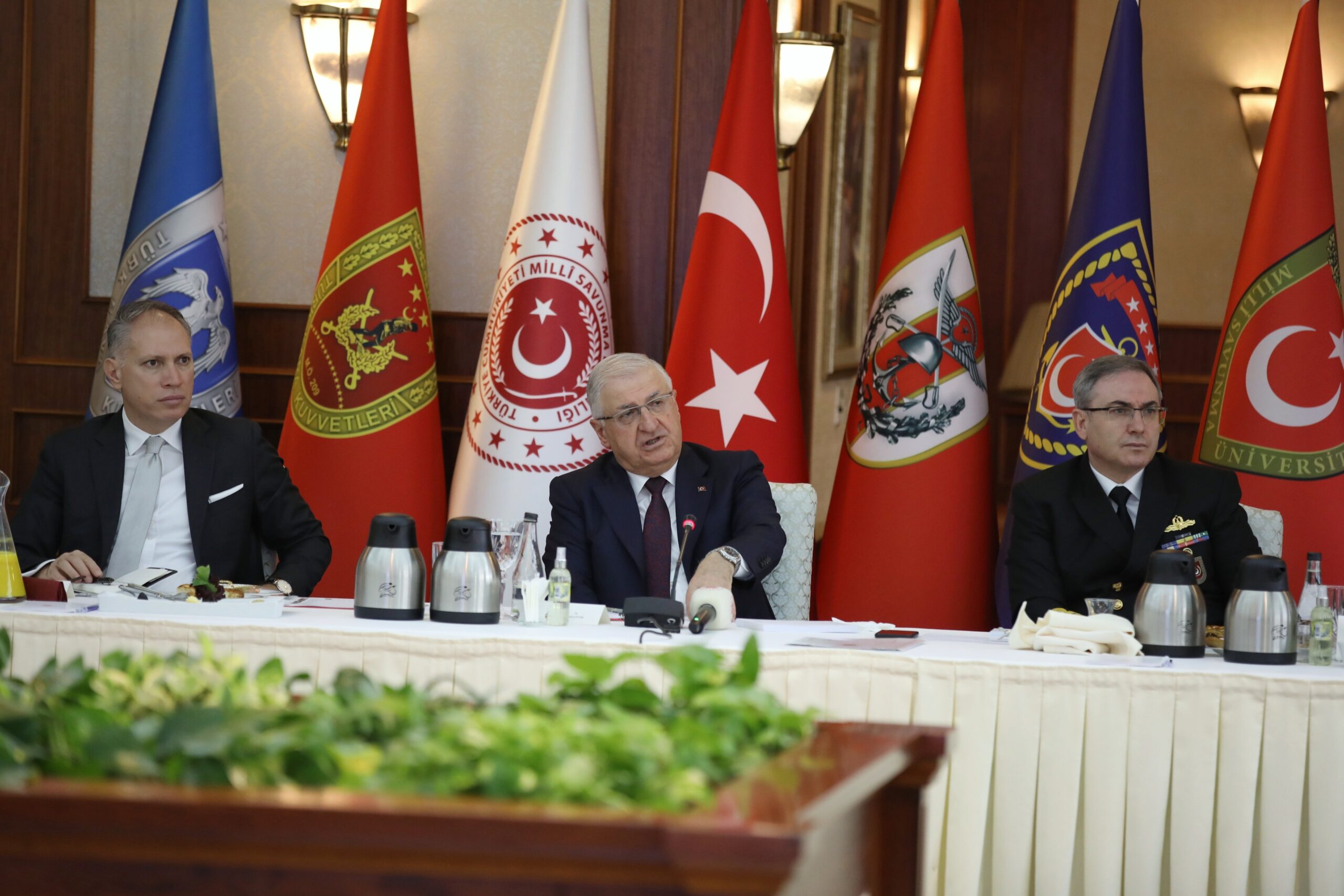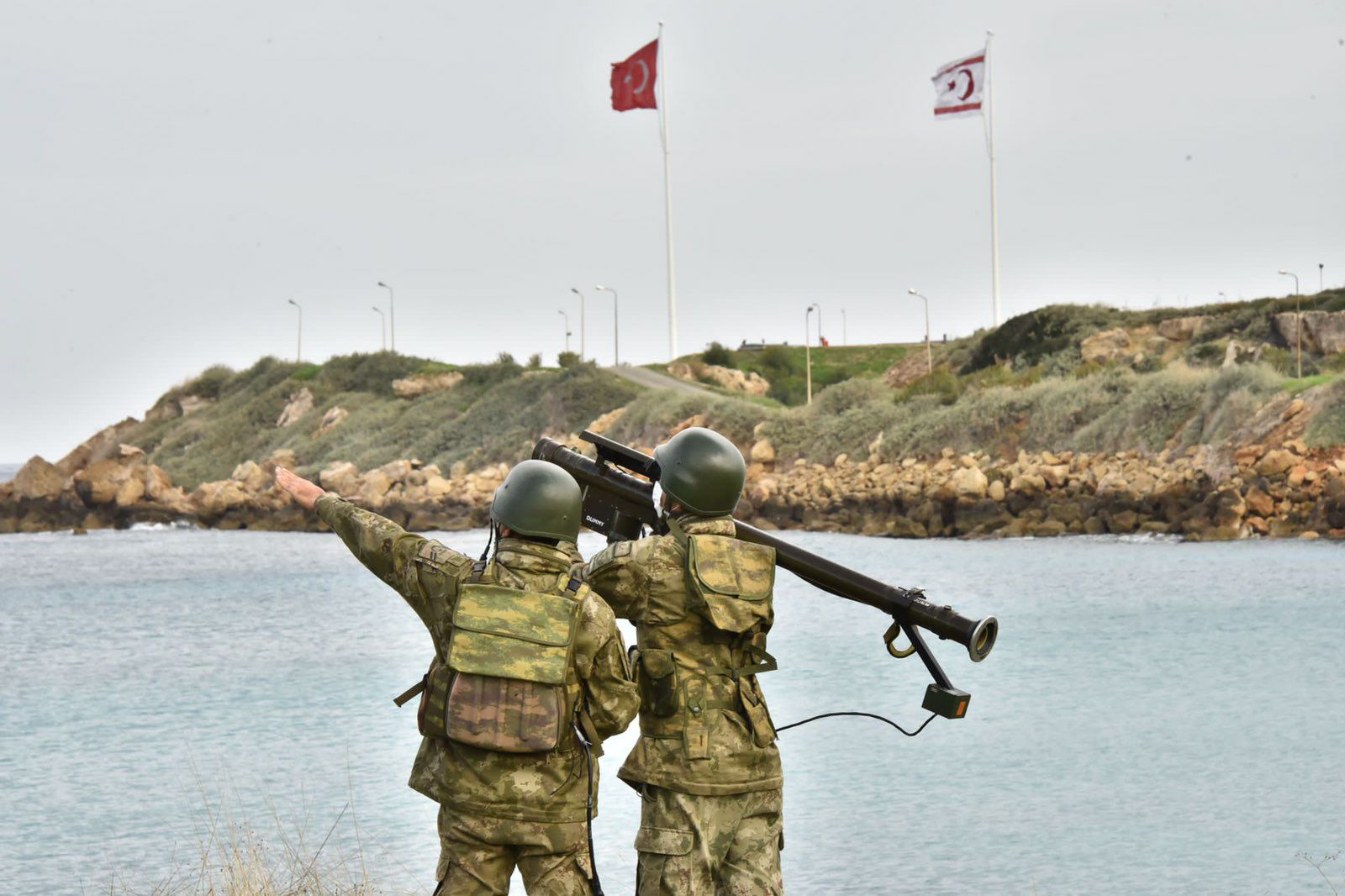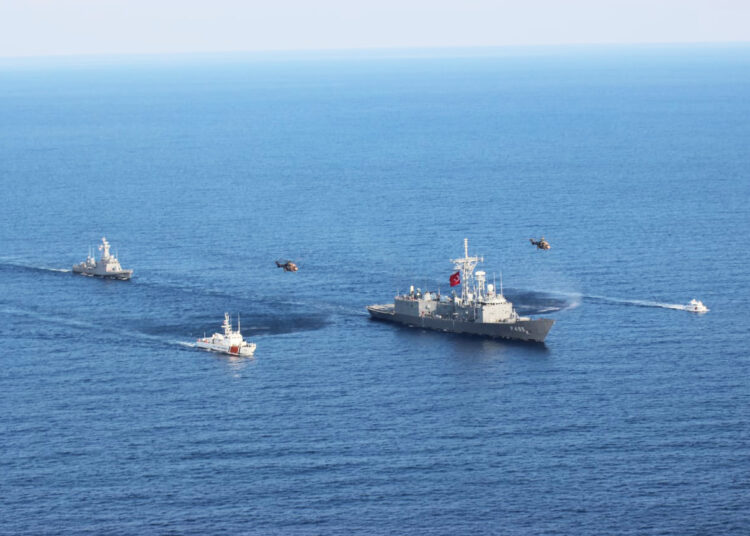Levent Kenez/Stockholm
Ankara seems to have shelved its long-standing plans to establish a new naval base in northern Cyprus, with the decision coming in the wake of a recent rapprochement between Turkey and Greece. Instead of pursuing the new base, Turkey will refurbish an older port to accommodate the docking of heavier-tonnage Turkish ships.
During a December 16 press conference in Ankara, Defense Minister Yaşar Güler announced Turkey’s intention to refurbish an old port in Cyprus specifically for docking military ships rather than establishing a base. Güler said Turkey frequently sends its ships to the region for exercises, visits and missions. He emphasized the need for a suitable docking facility, mentioning that currently there isn’t a dock where Turkey’s largest warship, the TCG Anadolu, could anchor if it were to visit Cyprus. “There’s an old pier there, and we’re renovating it for that purpose,” he said.

Güler’s remarks contradict a statement made by the Navy commander a month ago. Adm. Ercüment Tatlıoğlu announced during a ceremony on November 18 that a new naval base was being constructed in Cyprus, where the Navy would be permanently stationed. Tatlıoğlu also mentioned that the base would be situated in the northeastern part of Famagusta. Tatlıoğlu highlighted the increasing parity between Greece’s naval fleet and Turkey’s, emphasizing that while Greece previously had significantly fewer ships compared to Turkey, the current numbers are almost on par. He stressed the inability of any single state to unilaterally declare maritime jurisdiction in the eastern Mediterranean due to the presence of multiple countries with overlapping claims. He criticized the Greek Cypriot administration for attempting to claim sole ownership of the region’s resources by declaring various maritime jurisdictions in southern Cyprus as well as in the southern part of Crete, in conjunction with Greece.
It is noteworthy that Defense Minister Güler’s announcement of Turkey’s decision to forego the construction of a new naval base came after President Recep Tayyip Erdogan’s visit to Athens on December 6. Erdogan and Greek Prime Minister Kyriakos Mitsotakis took several steps as part of the process of normalization they initiated after a prolonged period of tension. Before the visit Erdogan had declared a departure from aggressive rhetoric regarding the Greek islands, stating that the intent was not directed at Greece. As a gesture of goodwill, Greece announced the reinstatement of the “visa-on-arrival” policy for Turkish citizens traveling to certain Greek islands. During the visit the leaders signed the “Good Neighborhood Declaration,” announcing a mutual decision to steer Ankara-Athens relations towards a more normalized course in the future.

Turkish Foreign Minister Hakan Fidan, at a press conference in Ankara in October after his meeting with Tahsin Türkoğlu, the foreign minister of the Turkish Republic of Northern Cyprus (KKTC), emphasized that Cyprus and the KKTC can benefit from the energy resources in the eastern Mediterranean without waiting for a political solution to the long-standing Cyprus issue.
The island has been divided into a Turkish Cypriot north and a Greek Cypriot south since Turkey’s intervention in 1974 following a coup by Greek nationalists, with Turkish Cypriots declaring independence in 1983.
The Turkish Armed Forces maintains a substantial military presence in Cyprus under the umbrella of the Turkish Peace Forces Command, which consists of around 40,000 soldiers. This force includes two mechanized infantry divisions, an armored brigade, a special forces regiment, a commando regiment and a marine battalion. There are also more than 100 tanks and pieces of artillery within two tank regiments on the island. Turkey also has anti-aircraft and close air defense system units stationed in Cyprus. Additionally, since 2019, Turkish military drones have been deployed on the island. These unmanned aerial vehicles conduct reconnaissance and patrol missions connected to a ground control station at Geçitkale Airport, affiliated with the naval forces.












